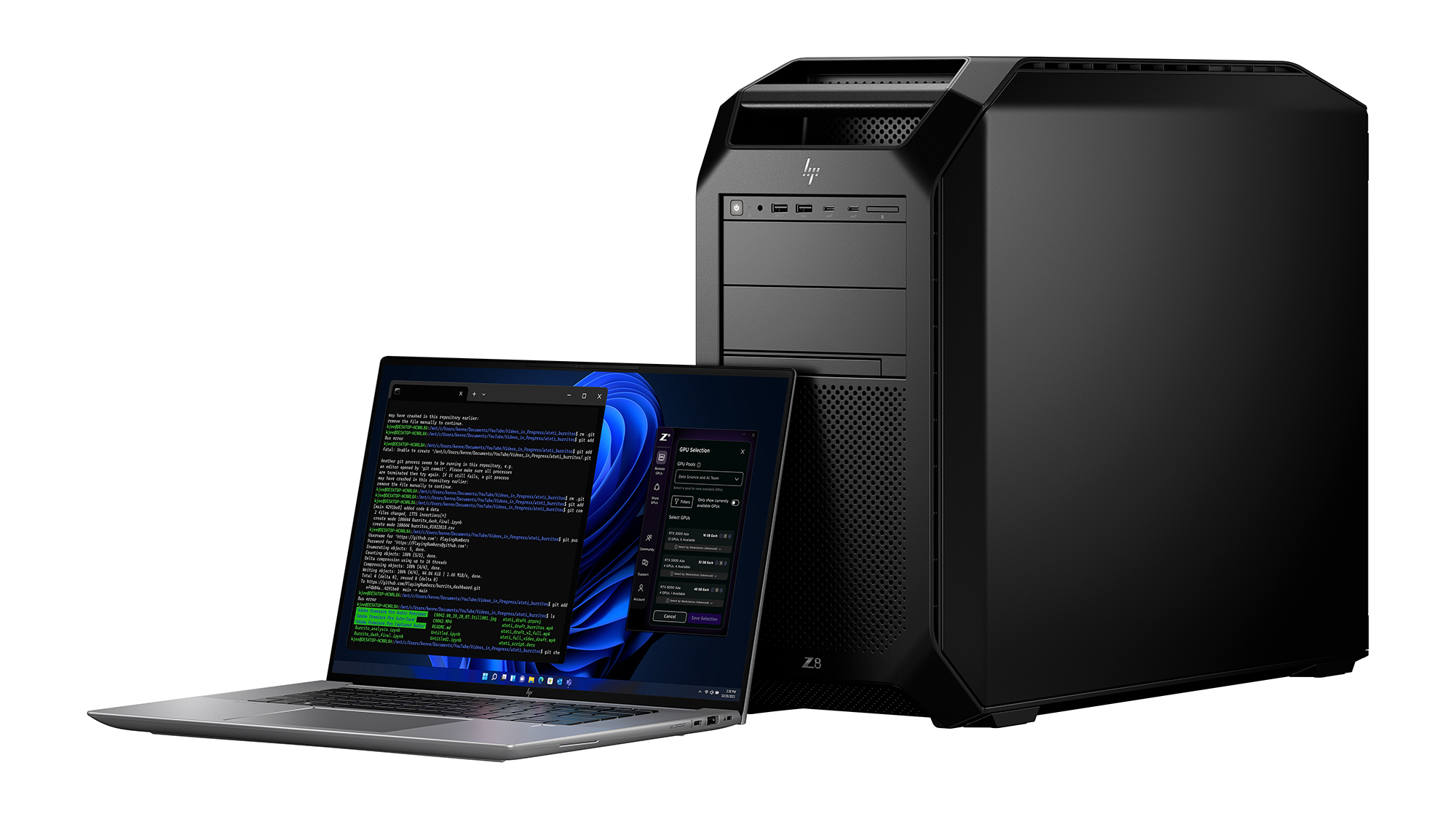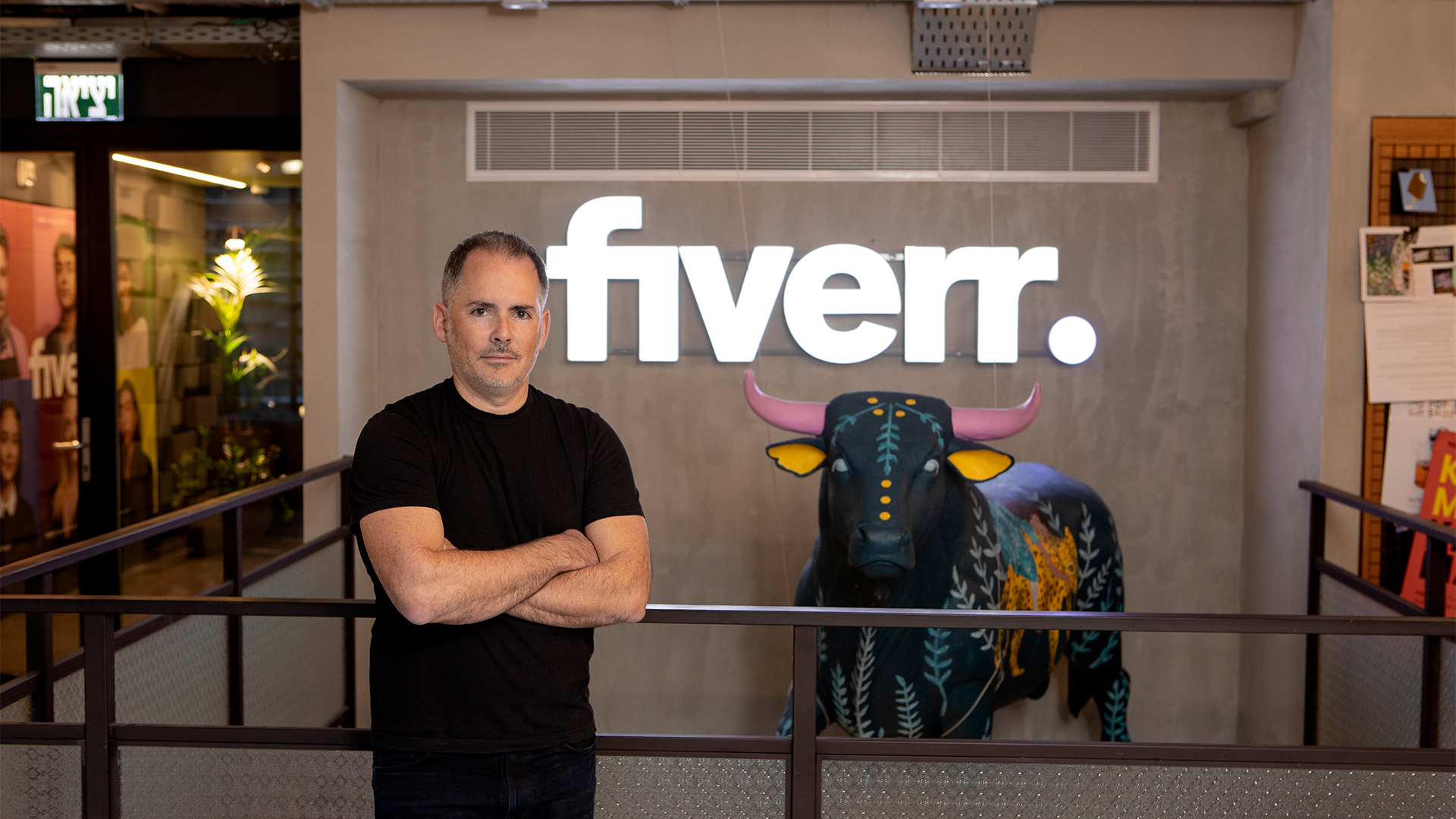Sponsored by HP
No limits: Data-driven insights for your future success, now
Taking advantage of data in the AI age necessitates the right hardware that will let you derive insights quicker and more efficiently than ever before

The enterprise is awash with so much data in today's landscape that it is becoming increasingly difficult to know how to begin making the most of it, and how to do so efficiently.
Many experts have predicted that by 2025 there will be an exponential rise in the amount of enterprise data – but the rise of artificial intelligence (AI) has also added a new dimension to how that data manifests and how businesses can use it.
Tom Sadler, HP UK and Ireland’s AI and Data Science Solution lead explains: “The sheer scale of data that enterprises handle today has transformed decision-making. Looking to the workplace of tomorrow, on-device AI tools, powered by cutting-edge workstations, are key to turning this data into actionable insights faster than ever before. These technologies empower organizations to not only keep pace but also to innovate ahead of their competition.”
One of the key trends expected next year is the universality of automated insights derived from data through large language models (LLMs) and similar advanced AI systems, according to Forbes.
With the likes of ChatGPT lowering the barrier to entry, now more than just the most technically proficient data scientists can query complex data sets for insights. With that in mind, turning data into insights quicker than the competition will be the deciding factor in getting ahead in any particular industry. This is why equipping the workforce with the best possible tools – including cutting-edge workstations designed to churn through AI workloads combined with the best-in-class software – is essential to gaining an edge in 2025 and beyond.
Big data in the AI age
Once data is sourced from various places, including existing databases, historical sources, e-commerce tools, social media channels, and customer conversations, among other areas, it needs to be processed.
This standardization is essential as it means various data pieces can be changed to a common format used by different tools. Here, AI-powered software is usually deployed to dive into the data to derive patterns or trends that can feed into better decisions.
These insights inform the thinking of human decision-makers who can pick out findings from a larger pool – and ultimately decide which actions to take to make concrete improvements.
"The ability to standardize and process data effectively is the backbone of any successful AI strategy," explains Sadler. "However, it’s not just about cleaning and organizing data. It’s about leveraging powerful AI tools and hardware to uncover trends that may not be immediately obvious and turning those into actionable insights."
There were far more barriers and technical requirements when the notion of big data first captured the imagination of enterprises. Recent advancements in technology, however, have lowered the barriers to the extent that more and more employees across an organization can view, interact with, and query data streams.
This is data democratization in action. Now businesses can rethink the way they consume, store, share, and reuse data so that more employees can access it, and make better-informed decisions based on their intent to query the data and process it.
Unlocking access to information that was previously stored in a data lake or warehouse, where only IT staff could previously access it, is one great example of data democratization. Another example is devising modern strategies to help connect new and varying data sources. Such shifts empower workers to make the most of new information streams and generate fresh insights. While much progress has been made, studies show that there is still plenty of work to be done to move from theory to reality when it comes to data democratization.
"At HP, we’ve seen first-hand how empowering teams with tools like Z by HP workstations or AI Studio can transform data into a competitive advantage," Sadler adds.
"It’s about enabling every employee to work smarter and faster, breaking down silos, and unlocking true organizational potential."
Although the majority (90%) of decision-makers believe data utilization is an important part of their organization's digital transformation efforts, just 44% say data use is a priority in day-to-day operations, according to research by Opendatasoft.
Staggeringly, 13% say their employer is a data leader. Further findings suggest that 66% of decision-makers believe it's quick and easy to access data they need – while half surveyed (50%) agree that accessing data requires specific skills or the need to speak with an expert analyst (48%). The same percentage suggests there's a gap between an organization's ambition to do more with data as well as the actual position that's reflected in the organization's actions.
Get the ITPro daily newsletter
Sign up today and you will receive a free copy of our Future Focus 2025 report - the leading guidance on AI, cybersecurity and other IT challenges as per 700+ senior executives
ITPro is a global business technology website providing the latest news, analysis, and business insight for IT decision-makers. Whether it's cyber security, cloud computing, IT infrastructure, or business strategy, we aim to equip leaders with the data they need to make informed IT investments.
For regular updates delivered to your inbox and social feeds, be sure to sign up to our daily newsletter and follow on us LinkedIn and Twitter.
-
 DocuWare CEO Michael Berger on the company’s rapid growth
DocuWare CEO Michael Berger on the company’s rapid growthNews ChannelPro sat down with DocuWare CEO Michael Berger to discuss the company's rapid growth and channel strategy.
By Bobby Hellard Published
-
 Seized database helps Europol snare botnet customers in ‘Operation Endgame’ follow-up sting
Seized database helps Europol snare botnet customers in ‘Operation Endgame’ follow-up stingNews Europol has detained several people believed to be involved in a botnet operation as part of a follow-up to a major takedown last year.
By Emma Woollacott Published
-
 ‘AI is coming for your jobs. It’s coming for my job too’: Fiverr CEO urges staff to upskill or be left behind
‘AI is coming for your jobs. It’s coming for my job too’: Fiverr CEO urges staff to upskill or be left behindNews The latest in a string of AI skills warnings has urged staff to begin preparing for the worst
By Ross Kelly Published
-
 Anthropic ramps up European expansion with fresh hiring spree
Anthropic ramps up European expansion with fresh hiring spreeNews Anthropic has unveiled plans to further expand in Europe, adding 100 roles and picking a new EMEA head.
By Nicole Kobie Published
-
 How simplicity benefits the IT partner ecosystem
How simplicity benefits the IT partner ecosystemSponsored Content Across private cloud and AI adoption, simple approaches can unlock more time and money for IT teams
By ITPro Published
-
 AI skills training can't be left in the hands of big tech
AI skills training can't be left in the hands of big techNews Speakers at Turing's AI UK conference lay out challenges to AI skills readiness
By Nicole Kobie Published
-
 The role of AI and cloud in true digital transformation
The role of AI and cloud in true digital transformationSupported Content Both cloud computing and AI technologies are vital to pushing your business forward, and combining them in the right way can be transformative
By Keumars Afifi-Sabet Published
-
 Generative AI adoption is 'creating deep rifts' at enterprises: Execs are battling each other over poor ROI, IT teams are worn out, and workers are sabotaging AI strategies
Generative AI adoption is 'creating deep rifts' at enterprises: Execs are battling each other over poor ROI, IT teams are worn out, and workers are sabotaging AI strategiesNews Execs are battling each other over poor ROI, underperforming tools, and inter-departmental clashes
By Emma Woollacott Published
-
 ‘If you want to look like a flesh-bound chatbot, then by all means use an AI teleprompter’: Amazon banned candidates from using AI tools during interviews – here’s why you should never use them to secure a job
‘If you want to look like a flesh-bound chatbot, then by all means use an AI teleprompter’: Amazon banned candidates from using AI tools during interviews – here’s why you should never use them to secure a jobNews Amazon has banned the use of AI tools during the interview process – and it’s not the only major firm cracking down on the trend.
By George Fitzmaurice Published
-
 Starmer bets big on AI to unlock public sector savings
Starmer bets big on AI to unlock public sector savingsNews AI adoption could be a major boon for the UK and save taxpayers billions, according to prime minister Keir Starmer.
By George Fitzmaurice Published
